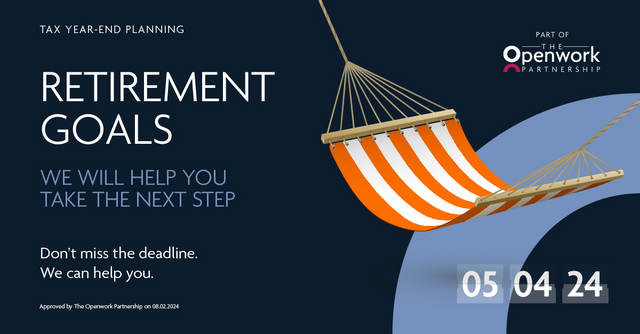Preparing for retirement: the road to financial freedom
Posted by Rebecca Harbrow on Friday 8th March 2024.

Retirement isn’t just about sipping cocktails on a beach; it’s about having the financial security to do so. Fortunately, there are plenty of ways to pave your way to financial freedom when it comes to your time to retire. However, it requires you to put in the work as the amount of money you need, will depend on the type of lifestyle you are picturing for yourself.
Start with a private pension
A private pension is a separate plan you can set up for yourself, where you contribute from your earnings, which pays you a pension after retirement. It is an alternative to the state pension.
Each private pension contribution you make is automatically increased by the basic rate of tax, which is 20% in the UK, including Scotland whose income tax is 19%. This means for every £80 you contribute, an additional £20 is added by the government.
If you pay a higher rate of income tax, you can reclaim this tax through self-assessment.
Set up a workplace pension
A workplace pension scheme is a way of saving for your retirement through contributions deducted directly from your wages. Your employer can also make contributions to your pension through the scheme.
Maximising your pension allowance
While there is no limit on the amount that can be saved in your pension each tax year, there is a limit on the total amount that can be saved each tax year with tax relief applying and before a tax charge might apply. Your annual pension allowance in the 2023/2024 tax year is your total salary or £60,000, whichever is the lesser amount, down to £3,600.
If in a previous year you had a pension, not a state pension, and made contributions below the maximum allowed level, then you could potentially fund these missing payments in this tax year, by carrying forward these allowances. This is known as pension carry forward.
Set up a child’s pension
To pave the way to financial freedom for your children, you can open a child’s pension. This can be opened and managed on behalf of the child by a parent or guardian until the child’s 18th birthday, however anyone can contribute to the account.
The pension limit is currently set at 100% of the child’s earnings (if applicable) or £3,600, whichever is the lower amount.
Build up a pension fund
It’s crucial to build up your pension, not only so you have financial freedom when you retire, but if you were to die, you can nominate someone to inherit your pension fund.
If you die before your 75th birthday, all pension funds can be paid to your beneficiaries tax-free. If you were to die after the age of 75, beneficiaries will be taxed at their marginal rates of income tax.
The value of your investments and any income from them can fall as well as rise. You may not get back the amount you invested.
HM Revenue and Customs practice and the law relating to taxation are complex and subject to individual circumstances and changes which cannot be foreseen.
Please note: by clicking this link you will be moving to a new website. We give no endorsement and accept no responsibility for the accuracy or content of any sites linked to from this site.